Before adding clinics or pushing teams harder, make sure your current capacity is working at its best. When schedules align and access is easy, more patients get seen and waiting lists shrink. Optimise what you have first. Build a system that keeps your clinics full and sustainable.
Use Case - Create Capacity
Fill gaps, not waiting roomsThe NHS doesn’t have a capacity problem, it has a wasted capacity problem
The real opportunity isn’t in adding more, it’s in using what we already have more effectively. Right now, millions of appointment slots go to waste, not because the system is broken, but because it isn’t fully optimised. When you transform how that capacity is used, you reduce delays, increase throughput, and ease pressure on staff.
- Missed appointments are rising
- DNAs are at their highest in a decade. Millions of slots are wasted each year, not because the system is broken, but because patients fall through the gaps.
- Inefficiencies block throughput
- More appointments won’t fix underused capacity. New slots alone don’t reduce delays. Without smarter systems, increased supply can’t meet rising demand.
- Maximise existing capacity
- Make better use of what already exists. Smarter workflows and better communication boost slot utilisation, reduce pressure on staff, and increase overall throughput.
Automated Scheduling
Invite with intent, don’t schedule by default
With partial booking, patients are offered appointments only when appropriate, allowing them to self-book within a defined window while ensuring the most urgent cases are prioritised.
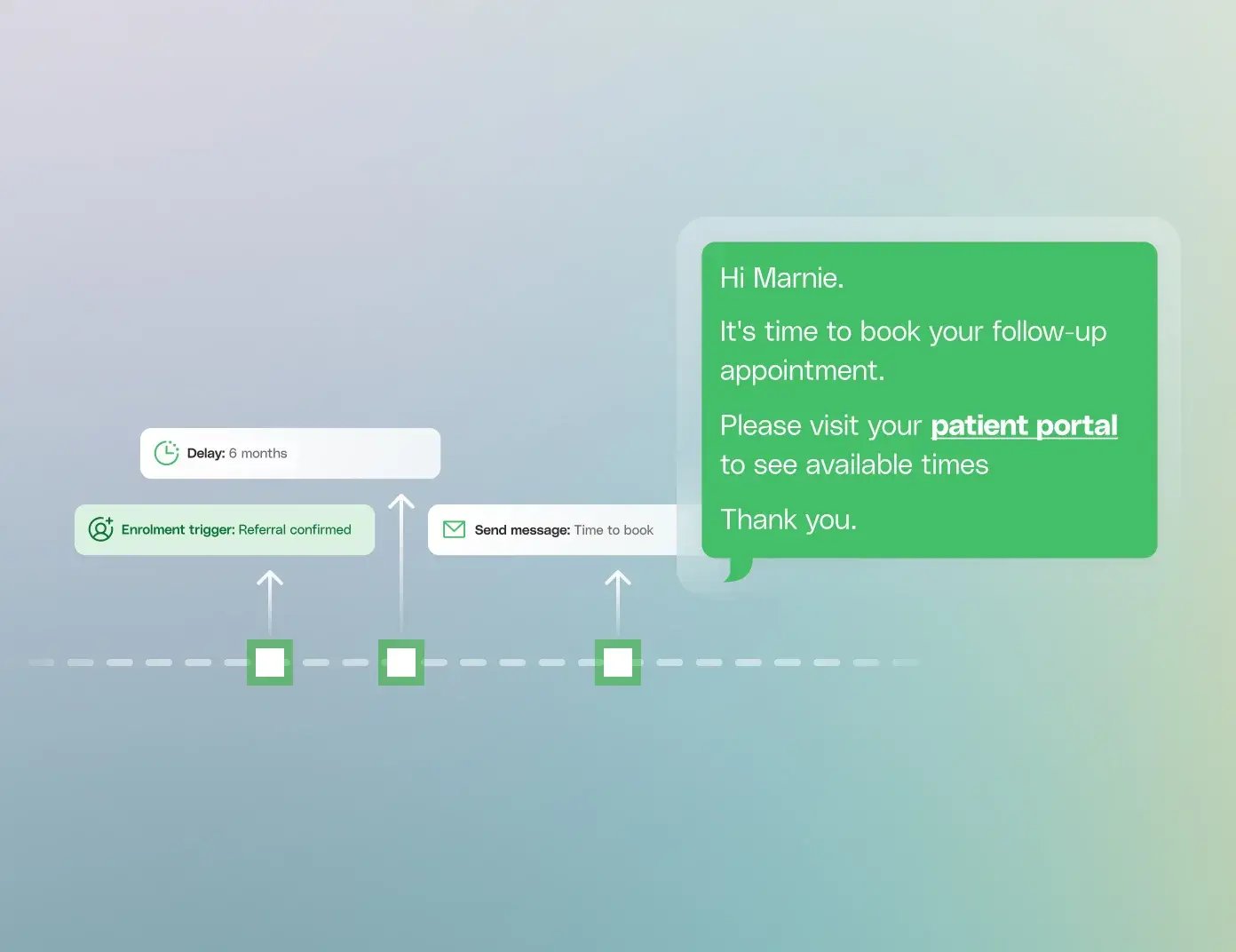
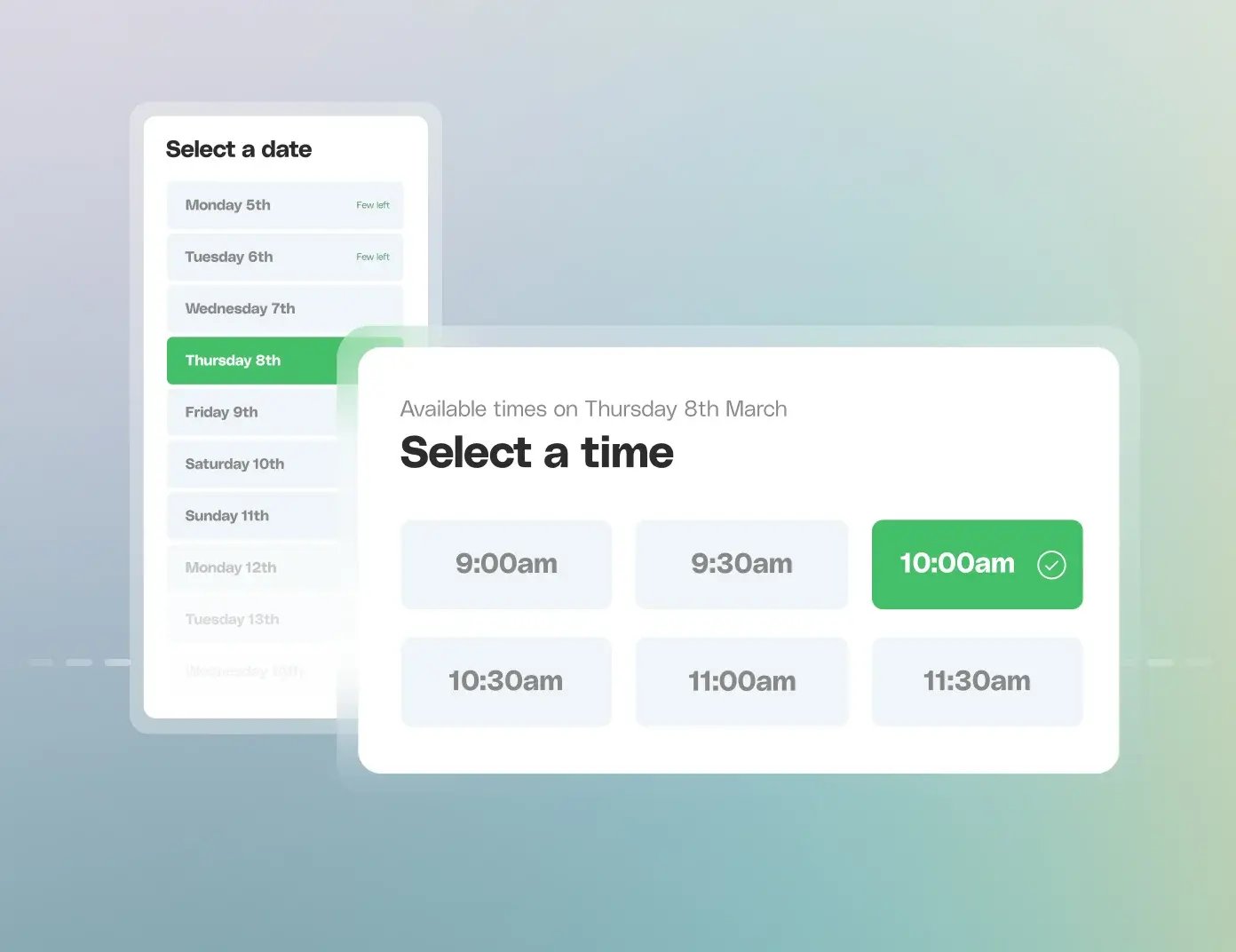
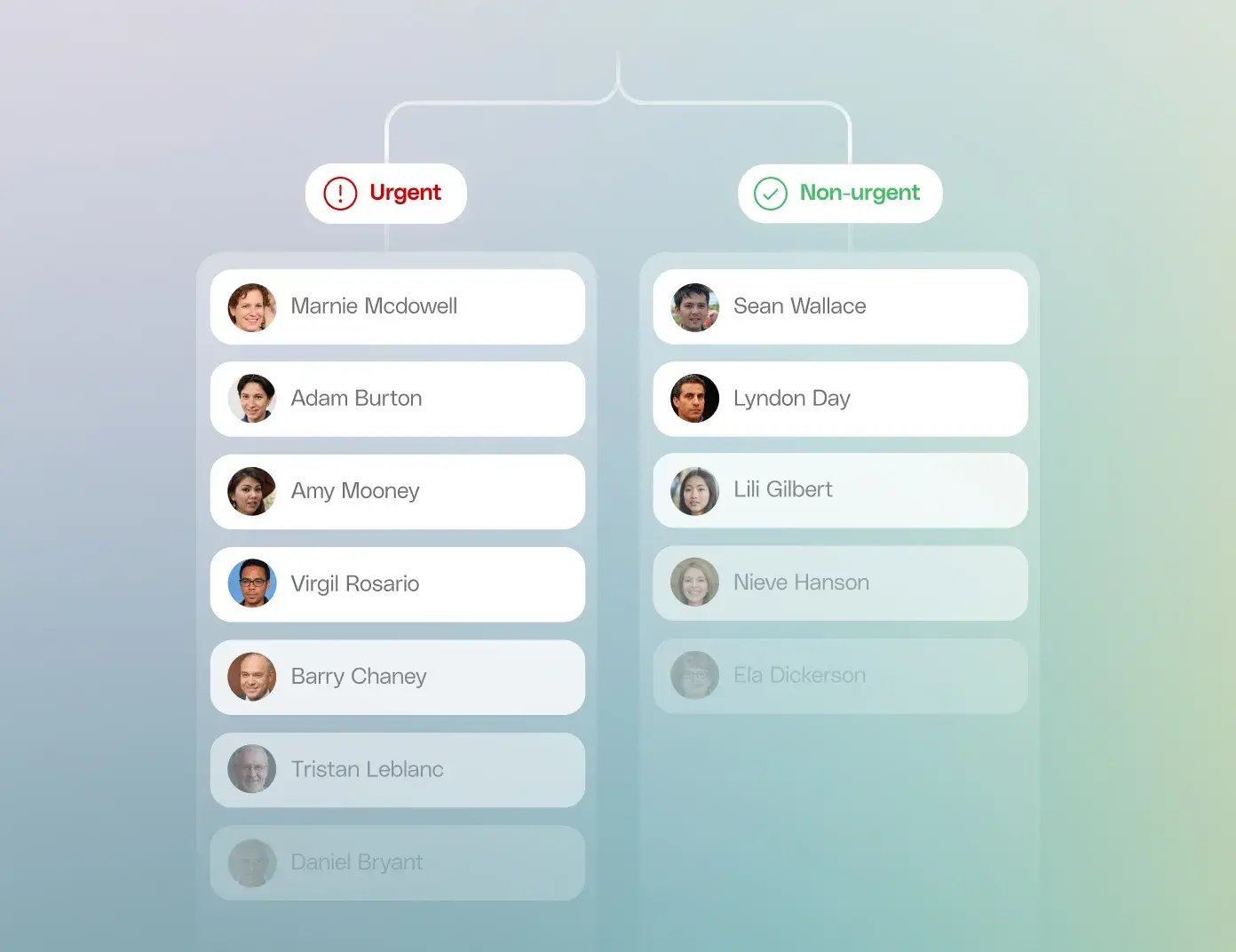

Patients are invited to book when they reach the booking horizon not years in advance. This keeps slots relevant, reduces churn, and ensures clinics run with fewer last-minute changes.

Give patients a defined timeframe and real choice. They select their appointment from live availability, reducing phone traffic and improving ownership - all without staff intervention.

Automatically surface patients with higher clinical urgency using built-in logic. Protect capacity for those who need it most while safely managing lower-risk follow-ups.
Smart Centre
Predict. Prioritise. Perform
One of the fastest, most sustainable ways to create capacity is by using real-time data to fine-tune clinic operations. With predictive tools and automation, you can respond dynamically, reduce waste, and keep patients moving - without adding extra hours or expanding clinics.
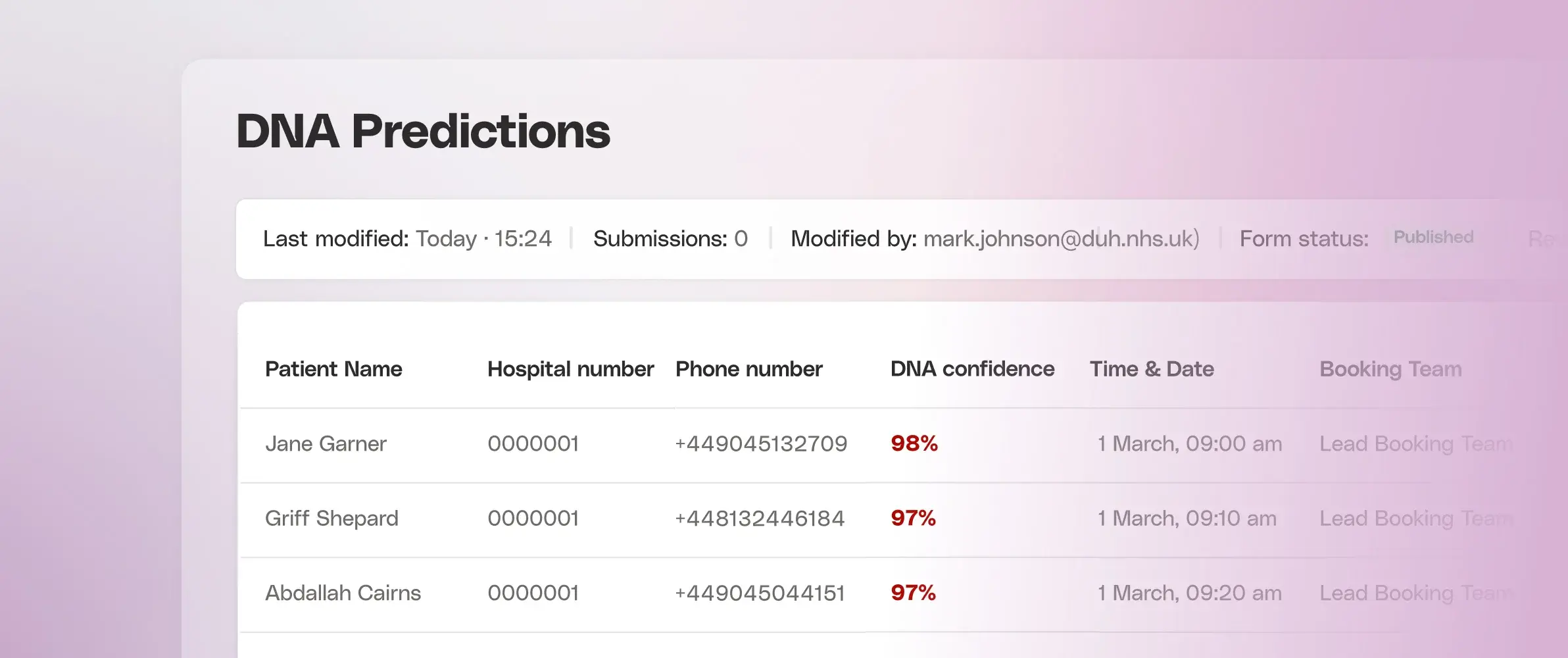
DNA prediction
Plan with precision, not assumptions. Use advanced DNA prediction tools to forecast non-attendance with confidence. Make smarter scheduling decisions, reduce wasted slots, and improve clinic efficiency by aligning resources with real demand.
Automated voice
Prioritise calls and keep slots full. Automated voice reminders and prioritised call lists help teams act fast on cancellations and fill slots with minimal admin. Stay ahead of changes and reduce downtime without the need for extra shifts or overtime.
Clinic optimisation
Dynamically adjust schedules, manage capacity by the minute, and optimise clinic flow based on live data. We help you assign the right appointments at the right time to get more from the capacity you already have.
System-wide capacity management
Share capacity where it counts
Digital triage, live capacity data, and two-way messaging make it easier to reassign appointments based on need and preference improving flow across clinics, reducing pressure points, and getting patients seen faster.
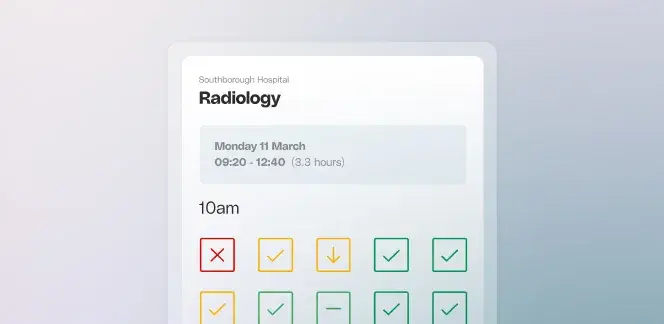
Start with visibility
Know what’s available and what’s needed. Digital triage surfaces clinical need early, while real-time booking data gives a live picture of capacity across services.
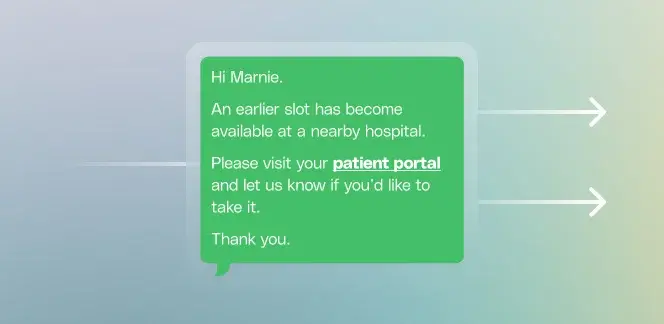
Redistribute with confidence
Use two-way messaging to check a patient’s willingness to travel or be seen elsewhere. With better information, appointments can be safely and confidently shared across clinics and settings.
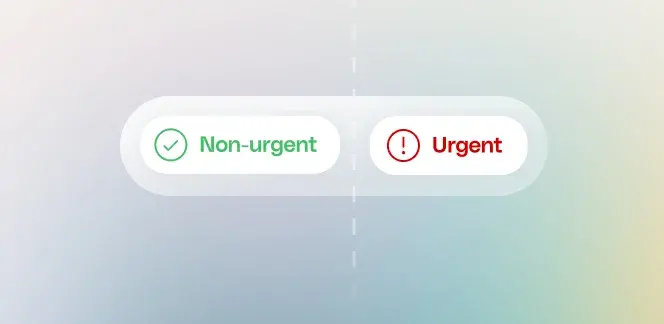
Match patients to the right place
Don’t hold everyone in the same queue. Allocate appointments based on clinical priority, availability, and patient choice — so care keeps moving and pressure stays low.
Eliminate what isn’t needed through smarter follow-up pathways
Not every patient needs a follow-up, but every slot needs to count. PIFU lets you safely release unnecessary appointments without discharging patients entirely. Those who don’t need to be seen stay visible, while those who do can access care faster.
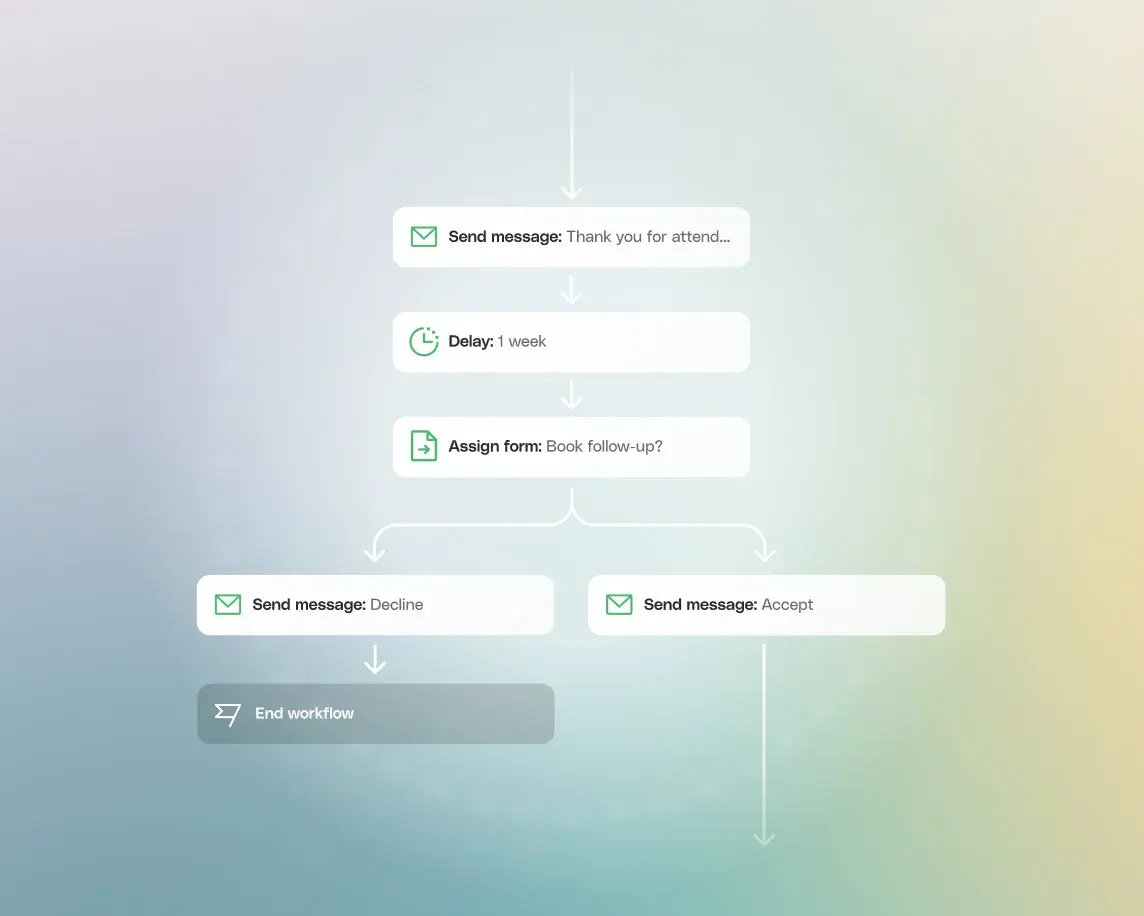
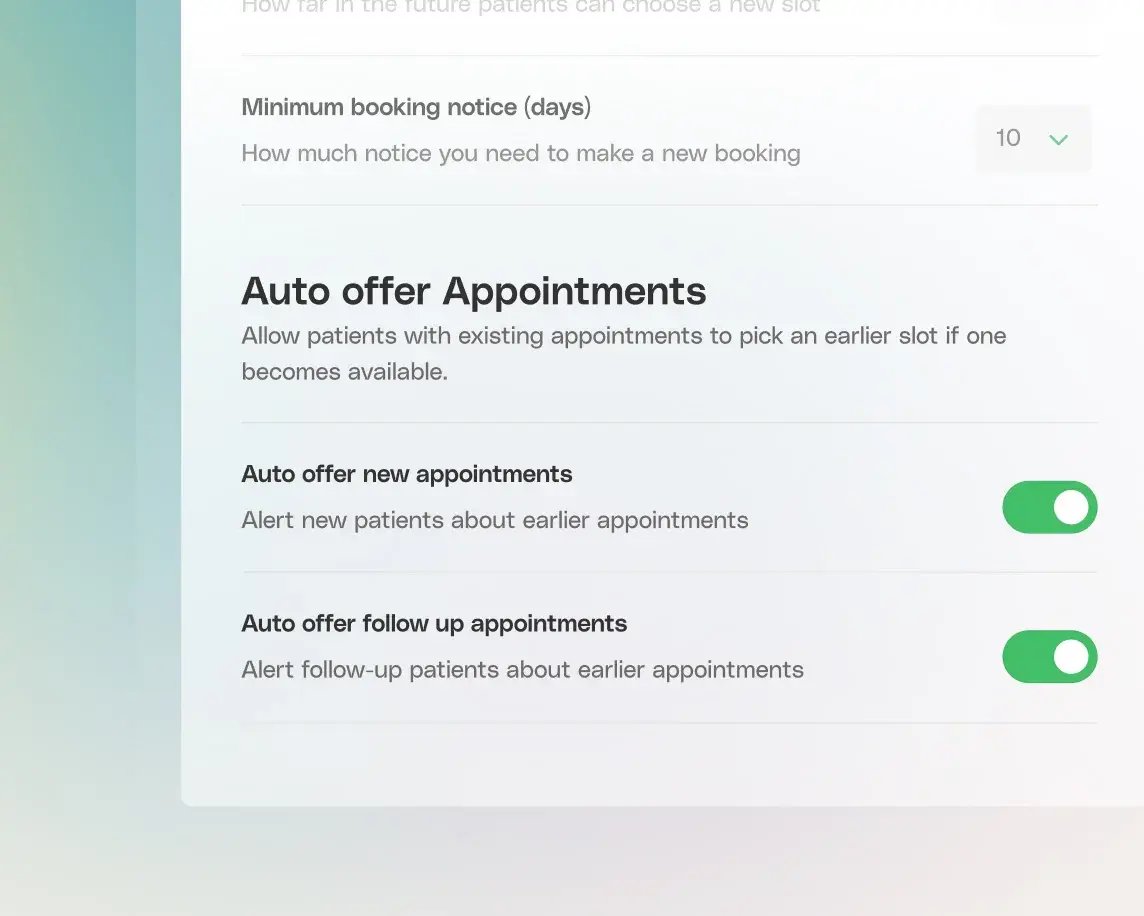
Prioritise what is and make every slot meaningful
Replace passive follow-ups with intentional scheduling. With better visibility and control, you can focus time on those who need it most. Clinics stay full. Patients stay connected. And your capacity goes further.
Reduce rebooking pressure
Stop churn before it starts
Even with clinics fully booked, capacity is lost to churn. By connecting appointments across pathways, using real-time insight and smarter communication, you can reduce disruption and keep more of the planned day-to-day on track.

Minimise disruption from cancellations and DNAs
Churn is one of the biggest hidden drains on capacity. Missed slots, late dropouts and unattended follow-ups leave teams scrambling. Smart communication tools help you act early and keep the day intact.
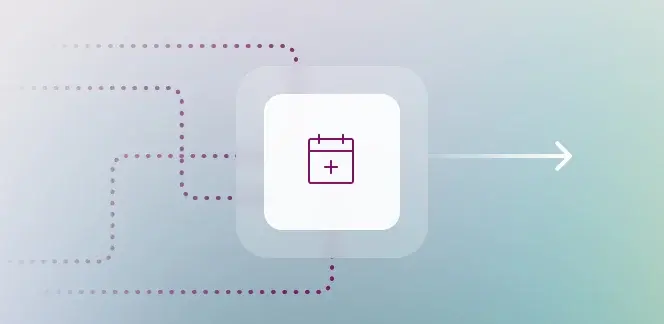
Keep the pathway connected
Missed appointments shouldn’t derail future care. With joined-up scheduling and live visibility, follow-ups can be adjusted in real time to protect downstream capacity and reduce knock-on impact.

Stay ahead of the schedule
Use automation to confirm attendance, flag issues early, and adjust booking patterns based on real patient behaviour. With better insight, your teams spend less time reacting and more time delivering care.